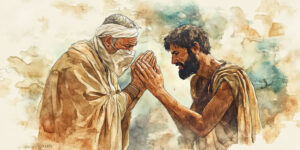
Healed?
In Luke 17, we find an episode in Jesus’ ministry that is both deeply profound and incredibly relevant to our lives today…
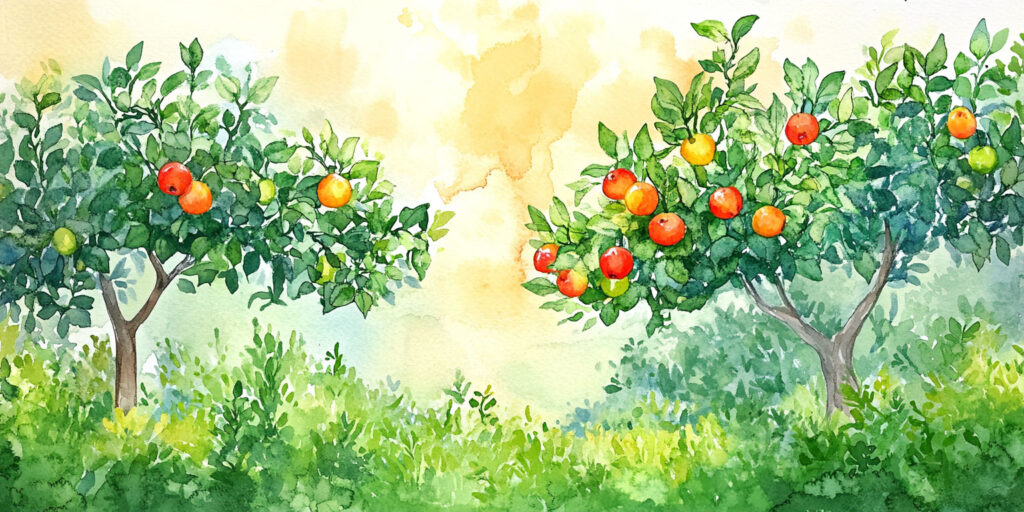
The Lord God took the man and put him in the garden of Eden to work it and keep it. And the Lord God commanded the man, saying, “You may surely eat of every tree of the garden, but of the tree of the knowledge of good and evil you shall not eat, for in the day that you eat of it you shall surely die.”
Then the Lord God said, “It is not good that the man should be alone; I will make him a helper fit for him.” Now out of the ground the Lord God had formed every beast of the field and every bird of the heavens and brought them to the man to see what he would call them. And whatever the man called every living creature, that was its name. The man gave names to all livestock and to the birds of the heavens and to every beast of the field. But for Adam there was not found a helper fit for him. So the Lord God caused a deep sleep to fall upon the man, and while he slept took one of his ribs and closed up its place with flesh. And the rib that the Lord God had taken from the man he made into a woman and brought her to the man. Then the man said, “This at last is bone of my bones and flesh of my flesh; she shall be called Woman, because she was taken out of Man.”
Therefore a man shall leave his father and his mother and hold fast to his wife, and they shall become one flesh. And the man and his wife were both naked and were not ashamed.
Now the serpent was more crafty than any other beast of the field that the Lord God had made. He said to the woman, “Did God actually say, ‘You shall not eat of any tree in the garden’?” And the woman said to the serpent, “We may eat of the fruit of the trees in the garden, but God said, ‘You shall not eat of the fruit of the tree that is in the midst of the garden, neither shall you touch it, lest you die.’” But the serpent said to the woman, “You will not surely die. For God knows that when you eat of it your eyes will be opened, and you will be like God, knowing good and evil.” So when the woman saw that the tree was good for food, and that it was a delight to the eyes, and that the tree was to be desired to make one wise, she took of its fruit and ate, and she also gave some to her husband who was with her, and he ate. Then the eyes of both were opened, and they knew that they were naked. And they sewed fig leaves together and made themselves loincloths.
And they heard the sound of the Lord God walking in the garden in the cool of the day, and the man and his wife hid themselves from the presence of the Lord God among the trees of the garden. But the Lord God called to the man and said to him, “Where are you?” And he said, “I heard the sound of you in the garden, and I was afraid, because I was naked, and I hid myself.” He said, “Who told you that you were naked? Have you eaten of the tree of which I commanded you not to eat?” The man said, “The woman whom you gave to be with me, she gave me fruit of the tree, and I ate.” Then the Lord God said to the woman, “What is this that you have done?” The woman said, “The serpent deceived me, and I ate.”
The Lord God said to the serpent, “Because you have done this, cursed are you above all livestock and above all beasts of the field; on your belly you shall go, and dust you shall eat all the days of your life. I will put enmity between you and the woman, and between your offspring and her offspring; he shall bruise your head, and you shall bruise his heel.”
To the woman he said, “I will surely multiply your pain in childbearing; in pain you shall bring forth children. Your desire shall be contrary to your husband, but he shall rule over you.”
And to Adam he said, “Because you have listened to the voice of your wife and have eaten of the tree of which I commanded you, ‘You shall not eat of it,’ cursed is the ground because of you; in pain you shall eat of it all the days of your life; thorns and thistles it shall bring forth for you; and you shall eat the plants of the field. By the sweat of your face you shall eat bread, till you return to the ground, for out of it you were taken; for you are dust, and to dust you shall return.”
The man called his wife’s name Eve, because she was the mother of all living. And the Lord God made for Adam and for his wife garments of skins and clothed them.
Then the Lord God said, “Behold, the man has become like one of us in knowing good and evil. Now, lest he reach out his hand and take also of the tree of life and eat, and live forever—” therefore the Lord God sent him out from the garden of Eden to work the ground from which he was taken. He drove out the man, and at the east of the garden of Eden he placed the cherubim and a flaming sword that turned every way to guard the way to the tree of life.Genesis 2:1-3:24
Imagine you’re invited to your 20-year high school reunion. At first, you’re excited—there’s a flood of memories and old friendships—but soon, anxiety creeps in. What will they think of me? Have I aged well? Am I successful enough? Insecurity returns with a vengeance. Suddenly, you’re 17 again, worried about acne, your weight, or being excluded. The fear of being judged can paralyze us. It can keep us from showing up. It can keep us from growing.
Now contrast that with a night spent laughing with close friends—sharing pizza after finals, goofing off during game night, or relaxing at a prayer group. There’s no fear. No pressure. You’re known, accepted, and loved. It’s a space of freedom, joy, and ease. That’s real life.
In the Bible, we see glimpses of this kind of life. Jesus eating fish on the shore with His disciples after the resurrection. Jesus with Mary, Martha, and Lazarus. Or even better, Adam and Eve walking with God in the Garden of Eden—perfect peace, perfect freedom, and perfect relationship. No fear of judgment, only connection and joy.
Life Before the Fall
Eden wasn’t just beautiful—it was ideal. God created it as a place for Adam and Eve to live in perfect harmony with each other, with nature, and most importantly, with Him. They had meaningful work: tending the garden, naming the animals. They had purpose, creativity, and freedom—true freedom born from trusting their Creator.
But there was one rule: do not eat from the tree of the knowledge of good and evil. The warning was clear: if you eat from it, you will die.
We often think of that tree as the tree of evil—but it wasn’t. It was the tree of the knowledge of both good and evil. And it was tempting. The serpent, Satan, twisted God’s words, raising suspicion and planting doubt: “Is God really looking out for you? Isn’t He holding something back?”
And so, Adam and Eve chose disobedience. They chose independence over intimacy. And with that choice came a cascade of consequences: shame, pain, division, anxiety, toil—and ultimately, death. The relationship that had defined and sustained their lives was fractured.
But there was another tree in the garden—one we often forget: the Tree of Life. They had full access to it before the fall. But once sin entered the picture, God protected them from it. In an act of mercy, He placed angels to guard the tree. Why? So humanity wouldn’t live forever in a broken, sinful state.
Even in judgment, God acted in love.
Life Under the Law
From Adam and Eve onward, humanity inherited a mindset rooted in that first disobedient choice. We began to view life through a binary lens: good vs. evil, right vs. wrong, success vs. failure, us vs. them.
We created laws to define and enforce morality. God Himself gave the Law to Israel, not as a punishment, but as a guide—a way to shape His people and protect them. Yet even this was a temporary solution, meant to point to something deeper. As Jesus said, the Law was given because of the hardness of our hearts.
But law-based living has its dangers. It can turn us into moral gatekeepers, more eager to judge others than examine ourselves. It keeps us living in fear—fear of doing the wrong thing, fear of punishment, fear of judgment. It’s like living in constant anxiety before that high school reunion, always worried: am I good enough?
Jesus: Life Under a Different Tree
Jesus didn’t live under the shadow of that first tree. He lived under the Tree of Life. His every move was rooted in intimate relationship with the Father. He wasn’t constrained by performance-based religion. He healed on the Sabbath. He defended sinners. He spoke truth that offended legalists. And He was utterly secure because He knew who He was and whose He was.
He showed us that true life isn’t about following rules perfectly—it’s about walking closely with God.
His actions were radical. He didn’t throw a stone at the woman caught in adultery. He dined with tax collectors and prostitutes. He overturned tables in the temple because relationship mattered more than ritual. Love mattered more than appearances.
Jesus lived and loved from a different place—one of grace, not guilt. One of connection, not condemnation.
A Renewed Mind
The Apostle Paul picks up this vision of life in his letters. In Romans 12, he urges believers to be transformed by the renewing of their minds—not to conform to the binary, fear-based systems of this world, but to live from the Spirit.
In Galatians 5, Paul describes the tension between the flesh and the Spirit. The works of the flesh are all too familiar: division, jealousy, immorality, selfishness. But the fruit of the Spirit is what life under the Tree of Life looks like: love, joy, peace, patience, kindness, goodness, faithfulness, gentleness, and self-control.
Against such things, there is no law.
These aren’t things we manufacture—they’re the result of abiding in Christ, walking in the Spirit, and living in a restored relationship with the Father.
Two Trees. Two Ways of Life.
We’re all born under the Tree of the Knowledge of Good and Evil. That’s the default. And we’re all affected by the curse that came with it—sin, shame, judgment, death.
But Jesus died on another tree—on a cross—to offer us something different. To restore what was lost. To make the Tree of Life available to us once again.
At the end of the Bible, in Revelation 22, the Tree of Life reappears. It stands by the river flowing from the throne of God in the New Jerusalem. Its leaves are for the healing of the nations. It is the symbol of redemption, restoration, and eternal life.
Jesus made it possible for us to live under that tree again.
So what does it all come down to?
Choose Life.
Moses said it to Israel: “I have set before you life and death, blessings and curses. Now choose life, so that you and your children may live” (Deuteronomy 30:19).
Jesus invites us to do the same. Choose relationship. Choose reliance. Choose freedom rooted in love.
Not judgment. Not fear. Not hiding. But trust, joy, gratitude, and peace.
Choose life.

In Luke 17, we find an episode in Jesus’ ministry that is both deeply profound and incredibly relevant to our lives today…
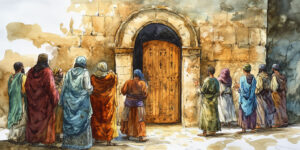
Jesus knew that before He could return to His rightful place in heaven, He had to endure betrayal, mockery, and immense pain. Yet, He pressed forward with unwavering determination…
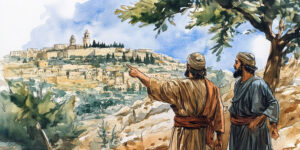
The Bible is filled with deep irony, and one of the most profound examples occurs as Jesus prepares for His final journey to Jerusalem. Just as He transformed the Passover
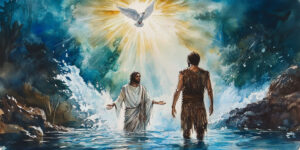
Faith is not merely spoken; it is demonstrated. Baptism is an act of obedience, a public declaration of our faith in Jesus Christ.
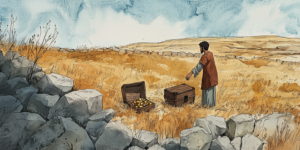
Through the parables of the hidden treasure and the pearl of great price, Jesus communicates a powerful truth: discovering the kingdom of God is worth more than anything else in
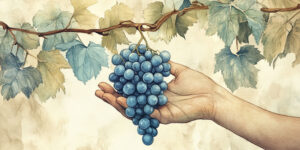
Jesus declares, “I am the true vine, and my Father is the vinedresser.” This imagery contrasts Israel’s failure to produce spiritual fruit with Christ’s perfect fulfillment of God’s purpose.
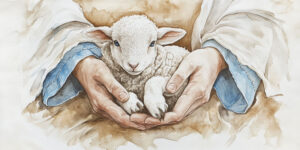
Psalm 23 offers us a profound lens through which to understand our relationship with God. It reminds us of His care, His presence in danger, and His abundant provision.